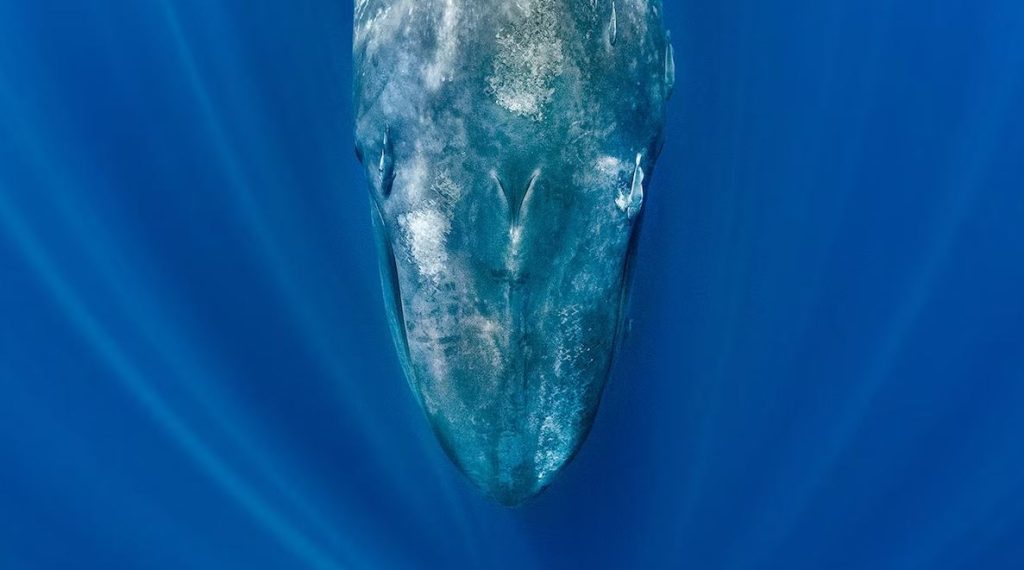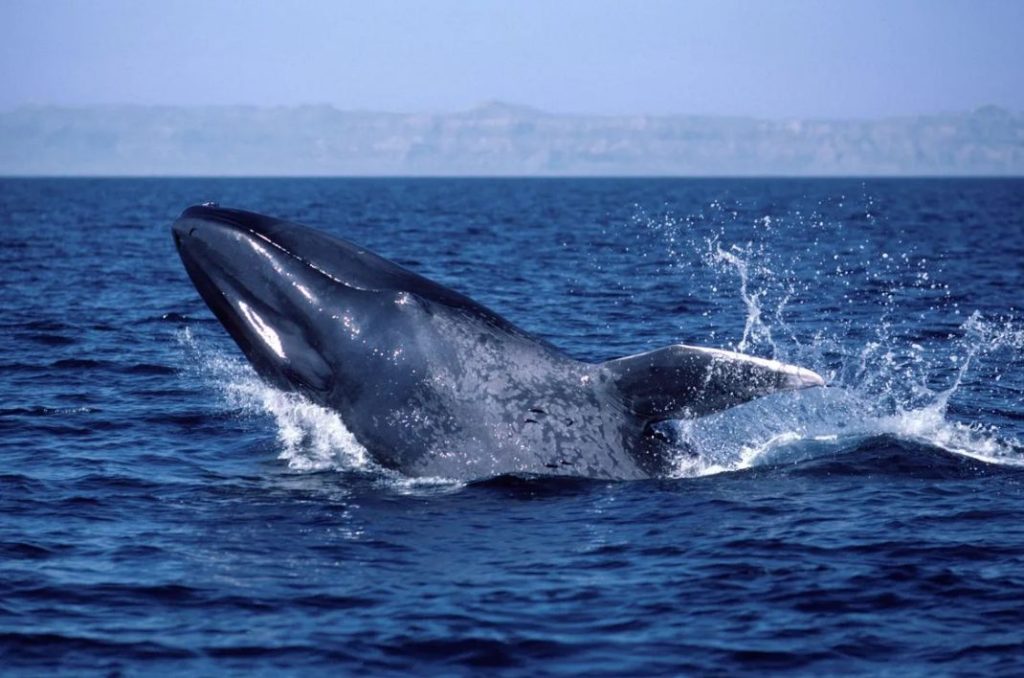Blue whales the largest animals on Earth are going quiet, and scientists say it’s a chilling signal for the ocean and the planet. Once the defining voices of the sea, their songs have dropped by nearly 40% over the past six years, according to researchers at the Monterey.
Starving Giants: Climate and Silence Linked
Why are these feeding giants falling silent? The culprit appears to be a historic marine heatwave dubbed “The Blob,” which began in 2013. This phenomenon heated ocean waters by about 4.5 °F, spawning the most widespread toxic algal bloom ever recorded. The bloom decimated krill populations, the tiny crustaceans blue whales rely on for sustenance. As a result, blue whales “are spending all their time just trying to find food”—leaving no energy left to sing, as one biologist put it, “like trying to sing while you’re starving”

A Warning Echoed Beyond the Whales
This silence isn’t just sad—it’s urgent. Blue whales are often referred to as ecological barometers. Their behavior reflects the ocean’s health, and changes in their vocal activity could signal broader ecosystem stresses. If blue whales fall silent—or worse, vanish—it could lead to a krill population boom, which in turn would disrupt entire marine food webs. Biodiversity, fisheries, and human food systems could all suffer.
Why Their Songs Matter
Under the waves, sound is everything. Whales use songs to find mates, navigate oceans, and coordinate feeding and migration. Without song, they risk losing connection, orientation, and their reproductive voice.Plus, anthropogenic factors like noise pollution aren’t helping. Boat engines, sonar, and industrial operations are drowning out whale communication, further isolating them.
What It Means for Us—And What We Can Do
Blue whales were nearly hunted to extinction. Now protected under international law, their recovery is fragile. This sudden silence highlights that conservation doesn’t end with survival—it must ensure thriving. When whales stop singing, it’s not just a species at risk, but a planetary soundtrack fading.
What can we do?
- Reduce greenhouse gas emissions to curb ocean warming
- Establish protected feeding grounds and marine sanctuaries
- Limit underwater noise with quieter shipping lanes and vessel technologies
- Monitor ocean soundscapes with hydrophones to understand behavioral shifts and act proactively
The Broader Impact of Losing Blue Whales
If blue whales were to vanish completely, the consequences would ripple through ecosystems in ways scientists are still working to fully understand. These creatures act as “ocean gardeners,” cycling nutrients through their movements and even their waste, which fertilizes microscopic phytoplankton. These tiny plants form the base of the marine food chain and produce over half of the Earth’s oxygen. Without whales, phytoplankton numbers could drop significantly, affecting fish populations and even the air we breathe.

Conclusion
Beyond their ecological role, blue whales are also an important part of human culture and history. They’ve inspired countless works of art, literature, and conservation movements. Losing them wouldn’t just create silence in the oceans — it would erase a living connection to our planet’s natural history. Preserving them means protecting a vital piece of Earth’s biodiversity, ensuring future generations inherit not just the memory, but the presence of these ocean giants.

















